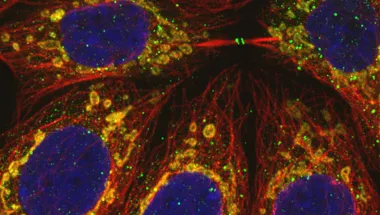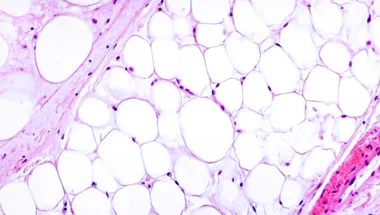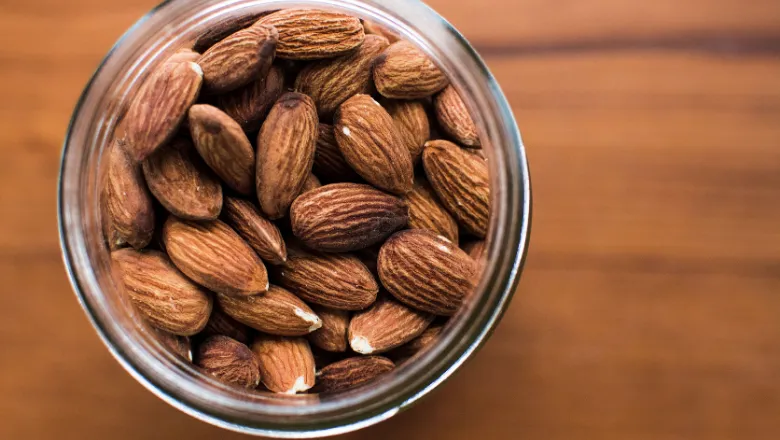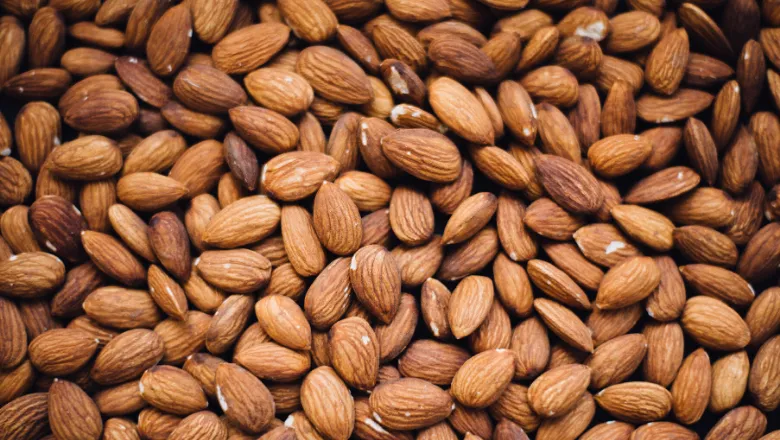
Professor Wendy Hall
Professor of Nutritional Sciences
- Head of Department of Nutritional Sciences
Research interests
- Nutrition
Biography
Wendy Hall is a Professor of Nutritional Sciences and Head of Department of Nutritional Sciences. Prof Hall completed her MSc Nutrition at King’s College London and her PhD in protein and the regulation of appetite at University of Surrey. Following postdoctoral research positions at both Surrey and Reading universities, she joined King’s College London in 2005. Prof Hall has a Postgraduate Certificate in Academic Practice and teaches on BSc Nutritional Sciences, MSc Nutrition, and MSc Dietetics courses. She is a Registered Nutritionist (Association for Nutrition) and in 2018 she was the recipient of the Faculty Supervisory Excellence award.
Prof Hall's broad research interests relate to the nutritional modulation of lipid metabolism, postprandial glycaemia and lipaemia, inflammation, and vascular function. Specific interests include investigating effects of dietary fatty acids (omega-3 fatty acids, saturated fatty acids), polyphenols, whole dietary patterns, and sleep/diet quality interactions on cardio-metabolic risk markers, and the role of diet in management of skin disorders such as psoriasis and acne, funded through a number of sources including BBSRC, Innovate UK, Almond Board of California, Psoriasis Association and the British Skin Foundation.
She is Deputy Editor for the British Journal of Nutrition, Section Editor for European Journal of Nutrition, and a member of the editorial board of the Nutrition Bulletin. In 2016, Prof Hall received the Nutrition Society’s Silver Medal for her contribution to nutritional science. In 2018 she was appointed to the role of the Nutrition Society’s Theme Leader in Whole Body Metabolism, later Nutrition & Optimum Life Course, and in 2023 she became Honorary Programmes Officer and Trustee of the Nutrition Society
Research

Lipids and Membranes Research Interest Group
A Lipids and Membranes Research Interest Group

Workplace nutrition and health
Metabolic disorders such as cardiovascular diseases and type 2 diabetes are increasingly understood to be associated with occupational factors such as job strain and working hours.

Postprandial metabolism
Postprandial metabolism refers to the metabolic changes that occur after a meal, following the absorption and processing of nutrients

Cardiometabolic health and diet
The Cardiometabolic health and diet Research Group is led by Dr Wendy Hall.

Dermatology and nutrition (nutritional dermatology)
Dermatology and nutrition (nutritional dermatology) is an emerging field that recognises the role that diet may play in the management of chronic skin disorders.

Chrononutrition
Chrononutrition is the study of interactions between diet, circadian rhythms, and sleep, and their impact on health. Misalignment between circadian rhythms and the timing of eating may have adverse effects on metabolic function and increase risk of weight gain.

Phytochemicals
Phytochemicals are plant secondary metabolites. Currently, more than 10000 different types of phytochemicals have been identified, and many still remain unknown.

Fats and fatty acids
Understanding of the role of dietary fats and fatty acids in human health is constantly evolving. Our department has a longstanding interest in the effects of manipulating dietary fat composition on cardiometabolic disease risk factors

The NutrImmune Study
Investigating how diet can optimise our immune response to flu vaccines. We're recruiting healthy adults, aged 40-64 years old, who consume 2+ snacks per day.
Project status: Ongoing

Safe and sustainable diets for a healthy body and mind (SSuDs)
This Research Interest Group on Safe and Sustainable Diets for a Healthy Body And Mind provides a unique opportunity for the King’s research community to address the challenges of safe and sustainable diets across a range of health outcomes
News
Christmas without the guilt – 12 health-boosting festive foods
Christmas is known as a time of indulgence and overeating, but some festive foods might actually be beneficial to our health.

Plant-rich, low saturated-fat diet associated with reduced psoriasis severity
A diet of fruits and vegetables, whole grains, low-fat dairy foods and lean meats, low in salt and sugar, is associated with reduced psoriasis severity, new...

Irregular sleep patterns associated with harmful gut bacteria
New research has found irregular sleep patterns are associated with harmful bacteria in your gut.

Eating almonds may help improve the heart and nervous system's responses to mental stress
Research suggests that eating almonds in place of typical snacks may diminish the drop in heart rate variability that occurs during mental stress, thereby...

Eating almonds can improve vascular health, study finds
Snacking on almonds is good for your vascular health and is an indicator of a healthy diet, a study has found.

Events

Inaugural Lectures: Professors Wendy Hall & Peter Irving
Inspiring talks from two of our new professors about their work, their specialisations, and their journeys to where they are today.
Please note: this event has passed.

The emerging importance of tackling sleep–diet interactions in lifestyle interventions
Seminar with Wendy Hall
Please note: this event has passed.
Features
5 minutes with Wendy Hall
Wendy Hall is a Professor of Nutritional Sciences and earlier this year was appointed as Head of the Department of Nutritional Sciences. We caught up with...

Professor Wendy Hall and Professor Vasa Curcin: What makes a good work-life balance?
Professor Wendy Hall, Deputy Head of the Department of Nutrition & Dietetics, and Professor Vasa Curcin, Joint Head of Department, Population Health Sciences,...

Spotlight on nutrition: Research into the impacts of our diets
From beans, to berries to new types of bread, our researchers have been doing a range of work to help us better understand how you are what you eat.

Research

Lipids and Membranes Research Interest Group
A Lipids and Membranes Research Interest Group

Workplace nutrition and health
Metabolic disorders such as cardiovascular diseases and type 2 diabetes are increasingly understood to be associated with occupational factors such as job strain and working hours.

Postprandial metabolism
Postprandial metabolism refers to the metabolic changes that occur after a meal, following the absorption and processing of nutrients

Cardiometabolic health and diet
The Cardiometabolic health and diet Research Group is led by Dr Wendy Hall.

Dermatology and nutrition (nutritional dermatology)
Dermatology and nutrition (nutritional dermatology) is an emerging field that recognises the role that diet may play in the management of chronic skin disorders.

Chrononutrition
Chrononutrition is the study of interactions between diet, circadian rhythms, and sleep, and their impact on health. Misalignment between circadian rhythms and the timing of eating may have adverse effects on metabolic function and increase risk of weight gain.

Phytochemicals
Phytochemicals are plant secondary metabolites. Currently, more than 10000 different types of phytochemicals have been identified, and many still remain unknown.

Fats and fatty acids
Understanding of the role of dietary fats and fatty acids in human health is constantly evolving. Our department has a longstanding interest in the effects of manipulating dietary fat composition on cardiometabolic disease risk factors

The NutrImmune Study
Investigating how diet can optimise our immune response to flu vaccines. We're recruiting healthy adults, aged 40-64 years old, who consume 2+ snacks per day.
Project status: Ongoing

Safe and sustainable diets for a healthy body and mind (SSuDs)
This Research Interest Group on Safe and Sustainable Diets for a Healthy Body And Mind provides a unique opportunity for the King’s research community to address the challenges of safe and sustainable diets across a range of health outcomes
News
Christmas without the guilt – 12 health-boosting festive foods
Christmas is known as a time of indulgence and overeating, but some festive foods might actually be beneficial to our health.

Plant-rich, low saturated-fat diet associated with reduced psoriasis severity
A diet of fruits and vegetables, whole grains, low-fat dairy foods and lean meats, low in salt and sugar, is associated with reduced psoriasis severity, new...

Irregular sleep patterns associated with harmful gut bacteria
New research has found irregular sleep patterns are associated with harmful bacteria in your gut.

Eating almonds may help improve the heart and nervous system's responses to mental stress
Research suggests that eating almonds in place of typical snacks may diminish the drop in heart rate variability that occurs during mental stress, thereby...

Eating almonds can improve vascular health, study finds
Snacking on almonds is good for your vascular health and is an indicator of a healthy diet, a study has found.

Events

Inaugural Lectures: Professors Wendy Hall & Peter Irving
Inspiring talks from two of our new professors about their work, their specialisations, and their journeys to where they are today.
Please note: this event has passed.

The emerging importance of tackling sleep–diet interactions in lifestyle interventions
Seminar with Wendy Hall
Please note: this event has passed.
Features
5 minutes with Wendy Hall
Wendy Hall is a Professor of Nutritional Sciences and earlier this year was appointed as Head of the Department of Nutritional Sciences. We caught up with...

Professor Wendy Hall and Professor Vasa Curcin: What makes a good work-life balance?
Professor Wendy Hall, Deputy Head of the Department of Nutrition & Dietetics, and Professor Vasa Curcin, Joint Head of Department, Population Health Sciences,...

Spotlight on nutrition: Research into the impacts of our diets
From beans, to berries to new types of bread, our researchers have been doing a range of work to help us better understand how you are what you eat.

